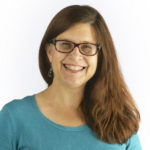When Katherine Rodela told her high school counselor she planned to attend a four-year university, the counselor suggested she set her sights on community college instead. Her parents hadn’t gone to college, the counselor said. She might not fit in on a university campus.
Rodela, a third-generation American Latina, had excellent grades. Her parents had encouraged her to go to college.
That night, Rodela repeated the conversation to her father.
He told his daughter: “That person doesn’t know what she’s talking about.”
Rodela proved her high school counselor wrong when she became the first person in her family to attend college. But on the university campus, she was still haunted by her high school counselor’s warning about not fitting in.
“Even though the professors were great, I felt I didn’t really belong,” she said.
She persevered. In June, Rodela and her youngest sister graduated on Father’s Day and gave their dad, one of their biggest cheerleaders, the best gift ever, Rodela said.
Her youngest sister received her bachelor’s degree. Rodela became the first in her family to earn a doctoral degree.
Rodela, now a faculty member at WSU Vancouver, does research on and teaches about college access. She will speak about college access Friday at the Southwest Washington Community Summit on College Access at Washington State University Vancouver.
Other speakers are John Deeder, superintendent at Evergreen Public Schools, and Dominique Merriweather, a vice president of Umpqua Bank.
At the summit, college and high school students, educators and community members will identify barriers to college success in Southwest Washington.
They’ll also start building a game plan for helping students and their families overcome their barriers.
College access has been a topic of focus at WSU Vancouver for about a year. In August, Mel Netzhammer, chancellor at WSU Vancouver, and Bob Knight, president of Clark College, had lunch with the superintendents of all the Clark County school districts and those in the wider Educational Services District 112 region.
They met to talk about improving access to college, Netzhammer said.
Access is about much more than making college affordable, he said. It’s talking to kids starting at a young age about the possibility of attending college. It’s talking to parents who didn’t go to college and letting them know that college is a possibility. Although Rodela’s parents encouraged their children to attend college, many parents don’t.
“Our youth need to see college as a possibility at a much earlier age,” Netzhammer said. “We can’t wait until high school. What do you say to a sixth-grader about college? A third-grader? How might we bring them to college campuses? How do we get their families to think about college as a possibility?”
One of the biggest obstacles to college access is the rapid increase in the cost of attending college: tuition, books and housing. Although the tuition at state colleges has not increased in four years, state-college tuition previously experienced double-digit increases.
About 35 years ago, it was possible for a full-time resident undergraduate student at Washington State University to pay a large chunk of college debt by working at a minimum-wage job.
That model is no longer feasible. Although minimum wage increased 312 percent, from $2.30 per hour in 1979 to the current minimum wage of $9.47 per hour, tuition at WSU has increased by 1,560 percent during that same time period — from $686 to $11,386 annually.
“As tuition increased, we saw a struggle for students to be able to stay in school,” Netzhammer said.
Since the recession, the campus opened a food pantry to feed the growing number of hungry students.
One of the groups Rodela has targeted in her research and teaching is Clark County’s growing Latino population, which may not have the support to consider college.
“I remember what it felt like when I was 17 years old and being the first person in my family to go to college,” Rodela said.
She counts herself lucky to have had the encouragement of her parents and many teachers to propel her toward her college dream.
College access is “about creating the systems of support so that all students can succeed,” said Rodela, who already is talking to her 4-year-old son about college. “I wouldn’t have gotten so far without teachers and parents pushing me.”



